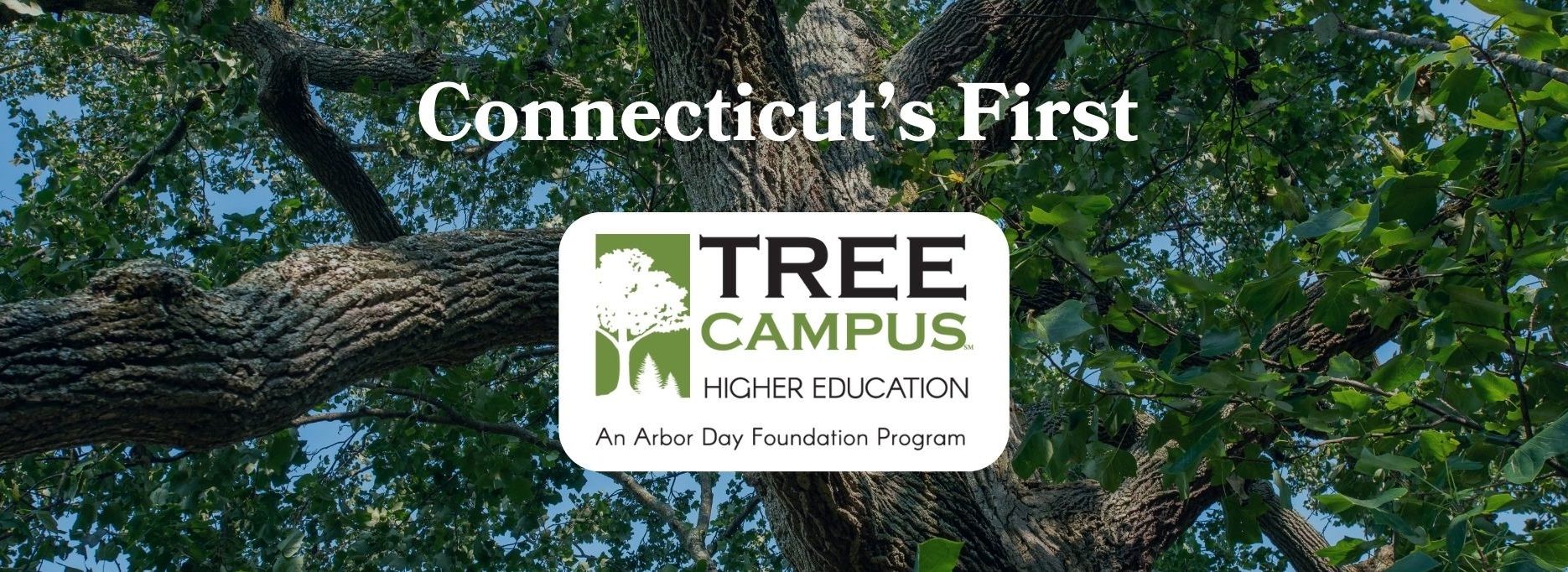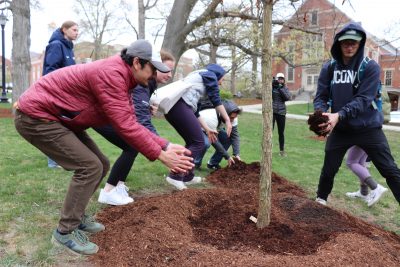
UConn is the first college in Connecticut and only the third school in New England to be named a Tree Campus USA by the Arbor Day Foundation. The University joins a group of over 400 schools nationwide that have earned this distinction for their commitment to tree conservation and preservation.
This certification is given by the Arbor Day Foundation to university campuses that effectively:
- Maintain a tree advisory committee
- Manage their campus trees and a tree care plan
- Observe Arbor Day
- Develop connectivity with the community beyond campus borders to foster healthy urban forests
- Strive to engage their student population utilizing service learning opportunities centered on campus and community forestry efforts
Former Vice Provost and emeritus EEB faculty member, Greg Anderson, co-chairs the UConn Arboretum Committee and was thrilled by this accomplishment:
“This impressive recognition for UConn is gratifying. So many people for so many decades have worked to make the natural environment not only a handsome complement to the ever-improving built environment on our campus, but also an effective way to frame the landscape and a useful tool for educating our students and others about a diversity of tree species.”
UConn’s plan was developed by the Office of Environmental Policy (now Office of Sustainability) in conjunction with the campus tree warden and Arboretum Committee member, Eileen McHugh, who also spoke about the tree campus designation.
“Tree Campus USA certification is tremendous recognition for the coordinated efforts at UConn to protect and promote the trees that are such a vibrant part of UConn’s character.”

Discover the Arboretum
Trees in the UConn News
A nationally recognized university for our care of our trees and our campus
- columns: 1
- pictures: on
- number-of-posts: 1
- search: tree
- safe-fetch: 1
- attempted-request: https://today.uconn.edu/wp-rest/wp/v2/posts?posts_per_page=1&search=tree&adjacent-posts=true&_embed
- columns: 1
- offset: 1
- pictures: on
- number-of-posts: 1
- search: tree
- safe-fetch: 1
- attempted-request: https://today.uconn.edu/wp-rest/wp/v2/posts?offset=1&posts_per_page=1&search=tree&adjacent-posts=true&_embed


